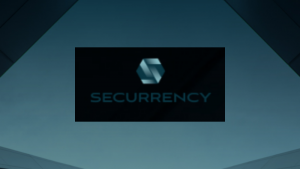
Security tokens minted with the CAT protocols are self-governing and ensure compliance throughout their life-cycle using Securrency’s regulatory technology. The company’s token key-lock structure (which is patent-pending) ensures tokens may not be traded or transferred to or from a wallet which does not have the appropriate qualifications.

“We developed the CAT-20 and CAT-721 standards because security tokens should be truly liquid – they should not be limited to one ledger and they should be easy to trade, transfer and regulate,” said Dan Doney, CEO and Co-Founder of Securrency.
“This new protocol will enable speed, efficiency and transparency for issuers – from Wall Street to Main Street – while meeting compliance at a global scale.”
CAT-20 and CAT-721
CAT-20 and CAT-721 tokens can issue from, and be transferred to, any distributed ledger. This includes:
- Ethereum
- Stellar
- Ripple
- GoChain
- EoS
- and others.
Securrency establishes compliance through features such as:
- individual and entity automated Know Your Customer (KYC) and Know Your Business (KYB) across 160+ jurisdictions, with non-documentary verification available in 37 jurisdictions
- transaction checks through a Know Your Wallet (KYW) service; this automatically proofs and scores digital wallets and associated cryptocurrency
- automated source of funds verification services through an easy-to-manage administration service
- validation of an investor’s accreditation or qualification according to jurisdiction
These multi-venue identity services, with a rules engine, ensure there is compliance maintenance during secondary-market trading:
- through on- and off-chain movements
- throughout the lifecycle of these security tokens.
In both primary and secondary market activity, the attribute-mapped wallet (the ‘key) must fit the policy linked to the token (the ‘lock’) for the CAT-20/721 token to transfer to a wallet. The rules engine allows for simplified mapping of relevant regulatory and transactional policies to a CAT-20/721 token by an issuer (or that issuer’s advisors) via a simple interface. In the event of changing regulations or shifting issuer requirements, updates to the rules engine will be applied directly by issuer/counsel to update the handling of tokens in circulation.
DIBS
Securrency’s proprietary Decentralized Investment Banking Services (DIBS) supports the CAT-20 and CAT-721 protocols. DIBS is a suite of security token issuance and maintenance tools and services. These are:
- deployable by investment banks
- accessible via Application Programming Interface (API) by developers
- utilisable by issuers.
In addition, Securrency will make its CAT-20 and CAT-721 protocols available to other security token issuance platforms and service providers. This should help to pave the way toward global adoption of security tokens to promote capital formation and enhanced global liquidity.

“Security tokens represent a pathway to the successful development of highly-liquid blockchain-enabled capital markets,” said John Hensel, Securrency’s Chief Operating Officer.
“However, there have been major challenges that stand in the way of mass adoption, including ‘walled garden’ approaches and complicated technical deployment. We believe that the global interoperability of the CAT-20 and CAT-721 protocols, as well as Securrency’s simple and convenient token issuance and maintenance tools, will establish a common standard that can be used by all issuance platforms to support the growth of the security token economy.”
About Securrency
Securrency is a technology products company that delivers security and compliance tools to issuers, broker-dealers, and alternative trading system operators.These enable the issuance, maintenance, and secondary trading of tokenised securities. Founded in 2015 by US security and technology experts, Securrency seeks to open up the free trading of previously illiquid asset classes through compliance and interoperability.
Securrency also offers secure, scalable FinTech/RegTech tools:
- either as individual modules
- or as a customizable, end-to-end platform for listing securities via Security Token Offerings (STOs)
while providing global KYC (Know Your Customer), anti-money laundering (AML) and other essential jurisdictional compliance for access to investors.
Enterprise Times: what does this mean
One holy grail in the blockchain arena is interoperability, between blockchains and blockchain platforms. Multi-ledger is a particular manifestation of this, and a critical one if transfers are to succeed. This is as important to businesses (and people) as banking.
While CAT-20 and CAT-721 have a specific focus, their success may have portents beyond their immediate focus area. Enterprise Times looks forward to seeing if a wider audience picks upon what Securrency has produced – though to do this will be hard when there is a dearth of implementation detail on CAT-20 or CAT-721 from Securrency.


























